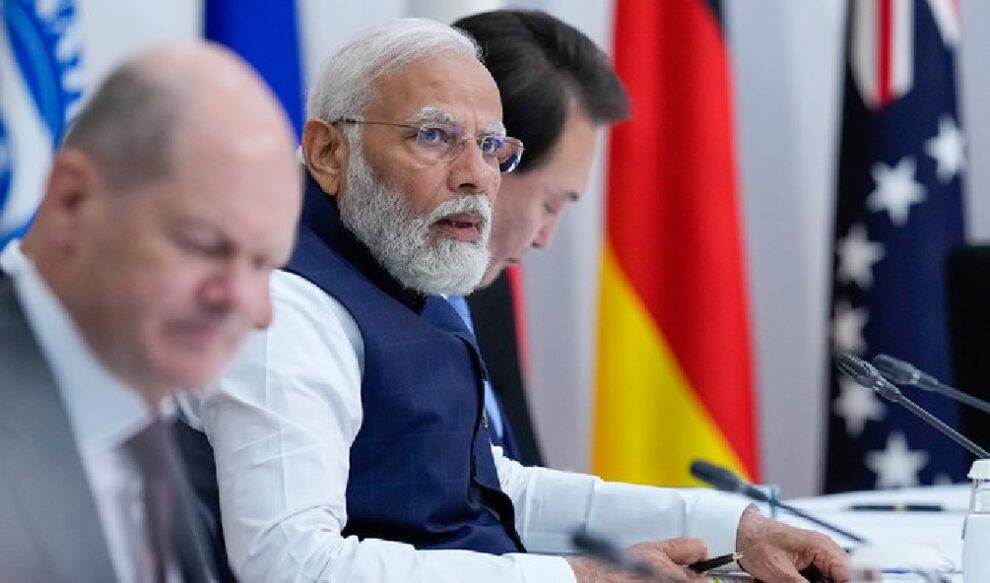Indian Prime Minister Narendra Modi, ahead of his visit to Japan for the G7 summit in Hiroshima on Friday, noted that his country wants “normal and neighbourly relations” with Pakistan.
However, he reiterated India’s oft-repeated position on the issue, saying the “onus is on Islamabad to create a conducive environment free from terrorism and hostilities”.
Pakistan has rejected the Indian stance and earlier this month told India, “Let’s not get caught up in weaponising terrorism for diplomatic point-scoring”.
Mr Modi, while speaking to Japanese publication Nikkei Asia, also mentioned the India-China standoff in eastern Ladakh, saying “Peace and tranquility in the border areas are essential for normal bilateral ties with China”.
Stating that India is committed to protect its sovereignty and dignity, he added that “the future development of India-China relationship can only be based on mutual respect, mutual sensitivity and mutual interests”.
He noted that “normalising” the ties would benefit the wider region and the world.
Speaking on India’s economy, the prime minister noted that it has been one of the world’s fastest-growing economies and stressed that the country has moved from being the 10th-largest economy in 2014 to now being the fifth-largest globally.
He added that his government’s aim was to transform India into a developed nation within the next 25 years.
On the Russia-Ukraine conflict, Mr Modi told the publication that India’s position on the Ukraine conflict “is clear and unwavering”.
“India stands on the side of peace and will remain firmly there. We are committed to supporting those who face challenges in meeting their basic needs, especially in the face of rising costs of food, fuel, and fertilisers. We maintain communication with both Russia and Ukraine,” he said.
“Cooperation and collaboration should define our times, not conflict,” he stressed.
Source : Dawn















